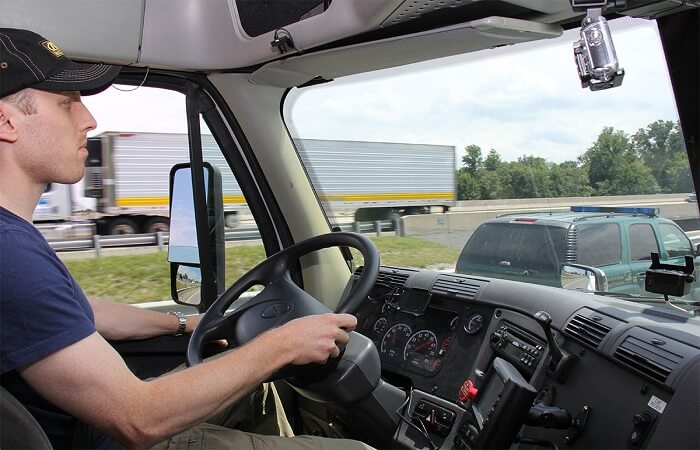Study: Comprehensive Approach Needed to Improve Trucking Safety
A strong safety culture, advanced technologies, training and management practices all are key.
A strong safety culture, advanced technologies, training and management practices all are key.

Trucking companies that prioritize safety through management practices and use of advanced technologies can greatly improve their performance outcomes, according to a new study from the National Surface Transportation Safety Center for Excellence (NSTSCE).
The research team worked with Travelers, a leading provider of commercial motor vehicle insurance, the National Safety Council and state trucking associations to identify nine carriers that experienced significant improvements in safety, including those once classified as “high risk” by the Federal Motor Carrier Safety Administration (FMCSA).
“There are common elements to fleet safety programs that can help virtually any carrier effectively protect their equipment, their cargo and, most importantly, their drivers,” said Chris Hayes, second vice president of transportation, risk control, at Travelers. “This study highlighted safety measures that proved most effective for the participants and can be incorporated by others to achieve positive results.”
All the fleets studied have since improved their safety outcomes, meaning they have experienced decreases in the number and severity of crashes and improved safety scores. The researchers interviewed the carriers about their safety improvement strategies to identify best practices that other high-risk fleets can implement.
Major study findings include:
“The results of this study indicate that a comprehensive approach to reducing crashes — which includes deploying advanced technology and building a strong organizational safety culture — can reduce fatalities and injuries on our roadways,” said Alex Epstein, NSC director of transportation safety. “We hope other carriers are able to learn from this research and take action to make their own fleets safer, the end result being safer roads for all and closer to our goal of zero fatalities.”
“Our findings were largely consistent in terms of the countermeasures the nine carriers viewed as influential factors in their improved safety records,” said Matthew Camden, the project’s principal investigator and senior research associate for VTTI’s Center for Truck and Bus Safety. “Overall, the carriers attributed their success not to one ‘single fix’ solution but rather the fact that they adopted a comprehensive approach to safety culture and practices within their companies, specifically the adoption of advanced safety technologies.”
The research was funded through the support of the following NSTSCE stakeholders:
While the Federal Motor Carrier Safety Administration identifies thousands of high-risk carriers each year, prior to the publication of this study, commercial motor vehicle fleets typically had no access to data or information on the strategies other carriers used to improve their safety records.
NSTSCE at VTTI was established by the Federal Public Transportation Act of 2005 to develop and disseminate advanced transportation safety techniques and innovations in both rural and urban communities.
The research team will present a detailed discussion of the results at the Fleet Safety Conference Oct. 28–30 in Henderson, Nevada.
About National Safety Council
The National Safety Council is a nonprofit organization whose mission is to eliminate preventable deaths at work, in homes and communities, and on the road through leadership, research, education and advocacy. Founded in 1913 and chartered by Congress, NSC advances this mission by partnering with businesses, government agencies, elected officials and the public in areas where we can make the most impact.
About Travelers
The Travelers Companies, Inc. (NYSE: TRV) is a leading provider of property casualty insurance for auto, home and business. A component of the Dow Jones Industrial Average, Travelers has approximately 30,000 employees and generated revenues of approximately $30 billion in 2018. For more information, visit www.travelers.com.
About Virginia Tech Transportation Institute
The Virginia Tech Transportation Institute conducts research to save lives, time, and money and protect the environment. As one of seven premier research institutes created by Virginia Tech to answer national challenges, VTTI is continually advancing transportation through innovation and has impacted public policy on national and international levels.
With a century-long legacy, the National Safety Council is a global center for safety expertise. Let's work together to align resources. We look forward to learning about ways we can join efforts to expand safety everywhere!
There are no items in your cart